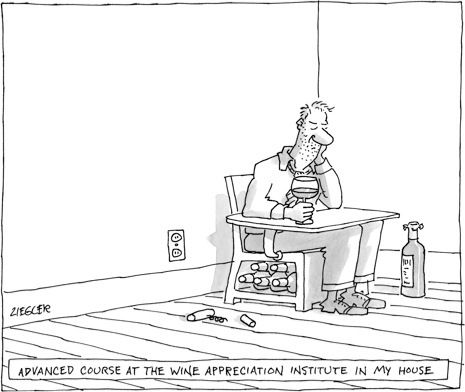
If you follow the musicians feed of Craigslist here in Miami awhile, you’ll find that the bands people are trying to form and find musicians for fall about equally into three distinct categories:
- Pretty ambitious and specific punk/hardcore/metal. These listings will say things like “must be into Caliban, IKTPQ, and August Burns Red etc.” (I personally found it instructive to click through and listen to a little bit of these bands’ music, though they’re myspace links, so they might crash your browser.)
- Specific professional genre bands that play reggae, salsa, classic rock covers, or what have you, and are after paying gigs, sometimes on cruise ships.
- Bands that say they want to sound like Radiohead.
Which, that last one is pretty strange if you think about it. True, Radiohead is maybe the most popular “serious” rock band since U2 gave up around 10 years ago. But on the other hand, Radiohead’s only real signature is that they have no one distinct sound, that they shift and evolve with the artistic whims that blow them this way and that way, that even their approach to songwriting and music making is open to renegotiation every time they go into the studio. So that to say you want to sound like Radiohead is to have missed the point, to have failed essentially before you’ve begun.
Then again of course the “Radiohead” signifier is a rejection of some of the less masculine (and more artistically potent) trends of bands like Animal Collective, Grizzly Bear, et al. I don’t know what sort of Craigslist ad these bands might have found each other through, but I do know that when they got down to making music, it wasn’t with a preconceived notion involving the sound of some already-existing thing. You get together and you start by throwing ideas around, and if you’re sufficiently creative and open-minded you arrive sooner or later at a distinctive vision, which you then let that artistic vision be your guide, take you where it may.
Which brings me to the xx album, which has been on heavy rotation at chez Alesh for a few weeks, which clearly began with singers Romy Madley Croft and Oliver Sim (cut them some slack on the names, they’re British) sitting a room with a couple of guitars, playing and singing. You can get a sense of what that sounded like from this clip, but what’s interesting isn’t so much the sparseness of the music; it’s how beautifully that sparseness translates to the completed record.
Sim moves to bass, and another guitarist is brought in to handle the less intricate parts. The sound is rounded out not by a drum machine, but by a drummer who taps out rhythms live on a grouping of little electronic pads. The sound is almost completely untreated, with the guitars clean and ringing and the bass bright and prominent, so that everything sounds naked and fresh. This to go with the lyrics, which, while not as sex-obsessed as you have been led to believe, are intimate and probing.
I don’t need to tell you that they’re great, you can hear that for yourself. What I think is so interesting they look like fans of Joy Division, right? Even the choice of instruments suggests Joy Division. They probably have started a band thinking they’d sound like Joy Division. But, thankfully, they approached it with an integrity and willingness to be led by the music. And they ended up sounding like Young Marble Giants and covering Aaliyah. The resulting buzz is not insubstantial.
The road to success in any artistic endeavor begins with casting aside your expectations and finding that new thing that wants to be found. You don’t do that by theorizing; you do it by sitting down and making stuff. You just can’t get to being like Radiohead by wanting to be Radiohead.
 In the beginning, we were all blown away by
In the beginning, we were all blown away by 
